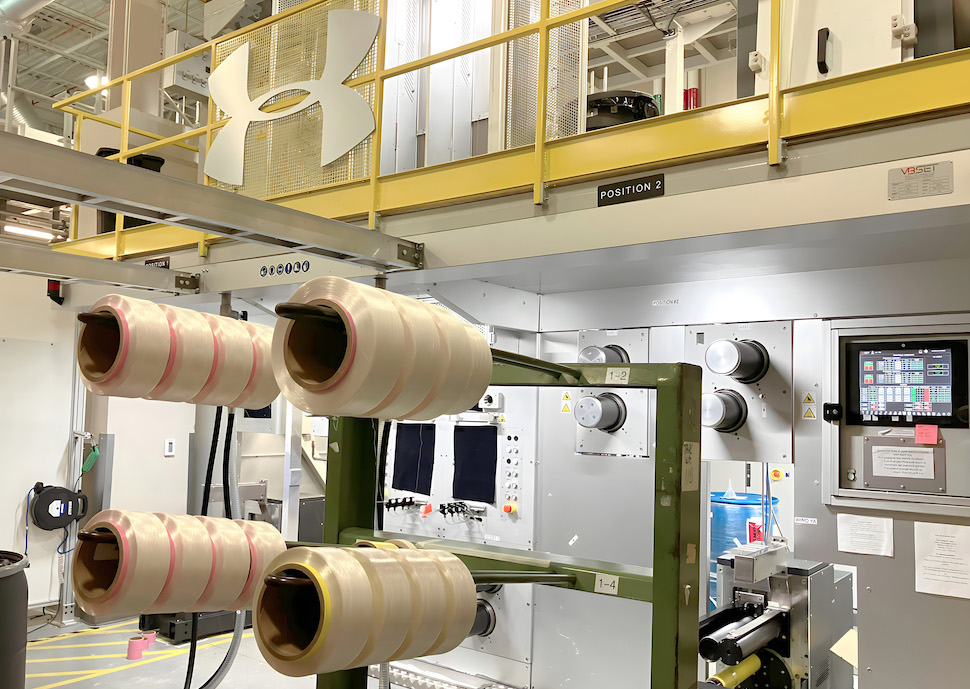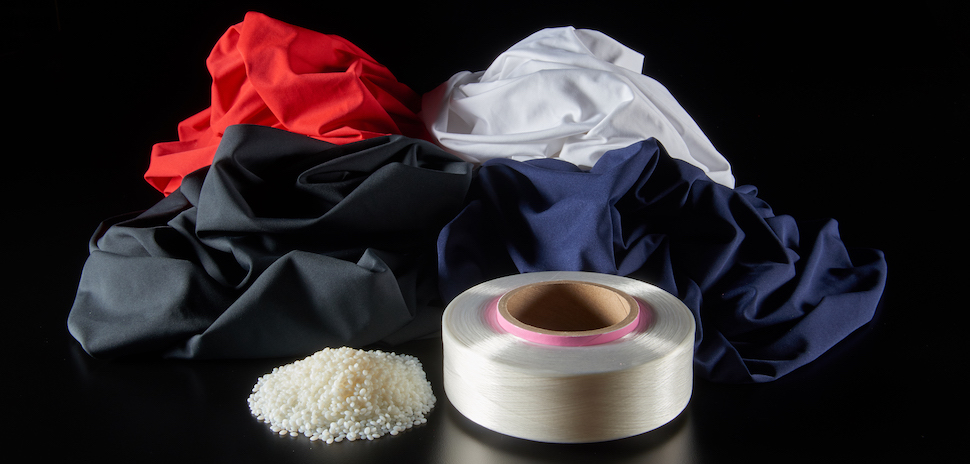Irving-based Celanese Corp. and sportswear company Under Armour have collaborated on a new fiber for stretch fabrics they say could improve both performance and sustainability.
Called NEOLAST, the innovative material will offer the apparel industry a high-performing alternative to elastane—an elastic fiber more commonly known as spandex, the companies said.
Celanese said the new fiber could unlock the potential for end users to recycle performance stretch fabrics, a legacy aspect that has yet to be solved in the pursuit of circular manufacturing with respect to stretch fabrics.
“Working with a leading global brand like Under Armour to elevate the performance and sustainability benefits of their products is just the first of many great things we hope to accomplish with this innovative NEOLAST technology,” Tom Kelly, Celanese SVP of engineered materials, said in a statement.
“Celanese is proud to bring its polymer expertise and technical know-how to help manufacture NEOLAST fibers for textiles and fabrics to meet the specific needs of our customers and other value chain partners,” Kelly added. “We’re just beginning to unlock its potential and look forward to what’s ahead as we explore other opportunities with end users.”

NEOLAST fibers in the works at an Under Armour facility. [Photo via Celanese Corp.]
Produced using a proprietary solvent-free process
Celanese said NEOLAST fibers have the powerful stretch, durability, comfort, and improved wicking expected from elite performance fabrics, yet are also designed to begin addressing sustainability challenges associated with elastane, including recyclability. It said the fibers are produced using a proprietary solvent-free melt-extrusion process, eliminating potentially hazardous chemicals typically used to create stretch fabrics made with elastane.
The fibers will be produced using recyclable elastoester polymers, the company said, a critical first step for the industry to address the challenge of recycling blended fabrics containing elastane. As end users transition to a more circular economy, Celanese and Under Armour are exploring the fibers’ potential to improve the compatibility of stretch fabrics with future recycling systems and infrastructure.
‘Performance-driven sustainability and innovation’
“This new NEOLAST fiber represents a transformative innovation for Under Armour and the textile industry, embodying our commitment to building better products for our consumers and planet,” Kyle Blakely, SVP of innovation at Under Armour, said in a statement. “Through performance-driven sustainability and innovation, we look forward to helping athletes play at the top of their game as we work with Celanese to realize this new fiber’s potential to forge a path toward circularity.”
Celanese said that along with sustainability benefits, the new fibers deliver increased production precision, allowing spinners to dial power-stretch levels up or down and engineer fibers to meet a broader array of fabric specifications.
The company said that in addition to Celanese exploring application opportunities with Under Armour, it intends to make the fiber available to the broader apparel industry, potentially reducing elastane dependence.
A global chemical company, Celanese is a leader in producing differentiated chemistry solutions and specialty materials used in most major industries and consumer applications. Under Armour is a leading inventor, marketer, and distributor of branded athletic performance apparel, footwear, and accessories.
![]()
Get on the list.
Dallas Innovates, every day.
Sign up to keep your eye on what’s new and next in Dallas-Fort Worth, every day.





![Celanese's ECO-CC product line, designed for customers seeking eco-friendly options, features products created using carbon capture technology. [Image: Celanese video screenshot]](https://s24806.pcdn.co/wp-content/uploads/2024/01/Celanese-video-screen-shot-011023.jpg)























